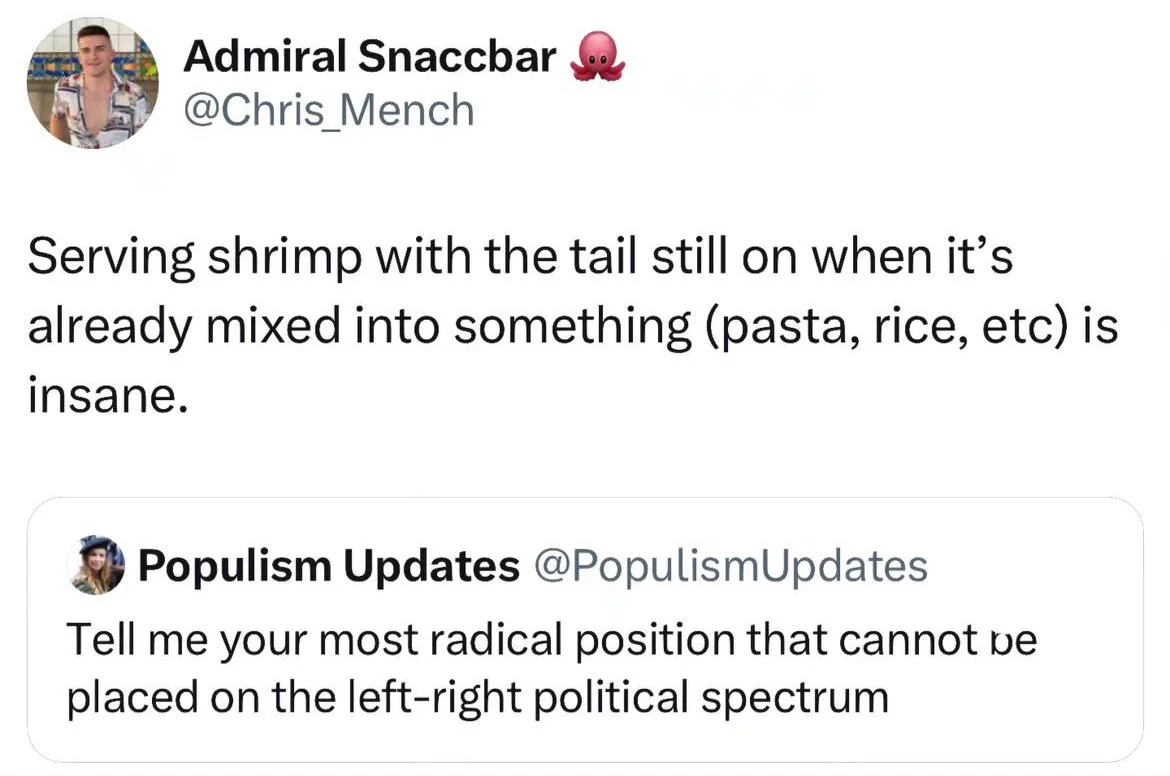this post was submitted on 13 Sep 2024
1210 points (98.1% liked)
Microblog Memes
6518 readers
3464 users here now
A place to share screenshots of Microblog posts, whether from Mastodon, tumblr, ~~Twitter~~ X, KBin, Threads or elsewhere.
Created as an evolution of White People Twitter and other tweet-capture subreddits.
Rules:
- Please put at least one word relevant to the post in the post title.
- Be nice.
- No advertising, brand promotion or guerilla marketing.
- Posters are encouraged to link to the toot or tweet etc in the description of posts.
Related communities:
founded 2 years ago
MODERATORS
you are viewing a single comment's thread
view the rest of the comments
view the rest of the comments

Misunderstanding "right of way" is half the problem.
Right of way is ability to make a road, or the road itself by extension. You can't have the right of way - it's usually the government's - and you can't give it away. This is why wording is consistently who must yield the right of way, and not who has the right of way.
If it's a driver's turn to act, they are obligated to act. It's not their option or right to act.
I've usually heard "right of way" used in terms of sense 3 of the dictionary. I've never heard it used to refer to the ability to make a road -- that just makes me think you have a skilled construction crew on speed dial.
Dictionaries list common usage - even if incorrect. Look up the definition of right of way for your state or other government and I'm certain it will be the thing on which you travel or the right to create and manage it, not your "rights" while traveling on it.
I couldn't find a list of all definitions by state but the three states I checked all use that.
It would be weird if they didn't, since that's been the term since before automobiles existed: https://en.m.wikipedia.org/wiki/Right_of_way
Am I out of touch? No, it's the dictionaries that are wrong.
Looks like someone looked up their state definition and was annoyed at being wrong 😉
Indeed, in the boating world, the words are "stand-on" or "burdened" vessel, which makes it clear that the vessel that should continue its course has the obligation to do so under the collision regulations. The "give way" vessel should alter its course or intentions to "keep clear." Nobody — nobody! — has the "right of way."
There's actually no legal definition for "right of way" in the UK. Despite it being a widely understood concept, if you go to court to defend yourself in a road traffic accident and your defence is "it was my right of way, your honour", you could find yourself in trouble.
Weird. I found one in seconds on Google and it's about whether you can use the way, not the rules governing turn order while driving.
https://www.gov.uk/right-of-way-open-access-land/use-public-rights-of-way
Did you look it up before making that comment?
Ok. I was referring to the commonly known and understood "right of way" in regards to road traffic, I thought that was obvious but perhaps I could have made it clearer, but thanks for letting me know of the term in regards to access to land and public rights of way.